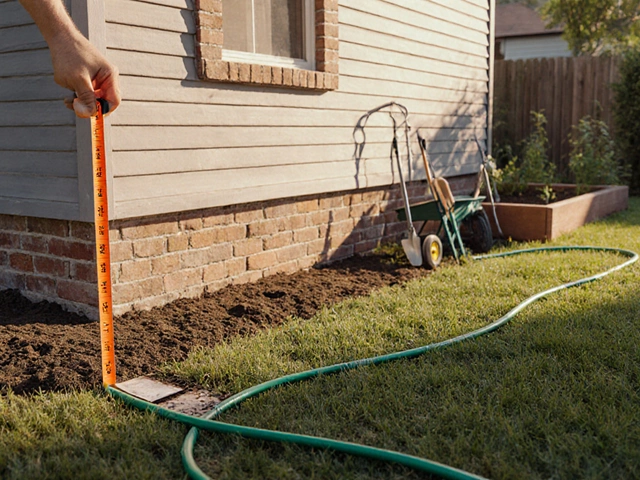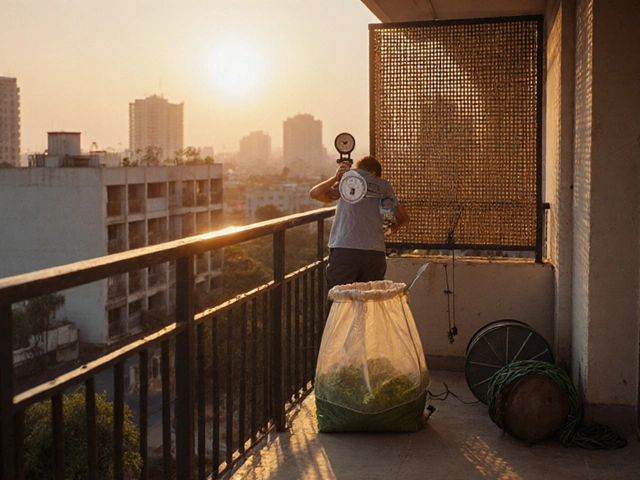Pest Control for Indian Gardens: Simple, Natural Ways to Keep Bugs Away
Every gardener in India knows the frustration of seeing sap‑sucking insects, caterpillars, or fungal spots ruin a hard‑earned harvest. The good news is you don’t need expensive chemicals to protect your plants. With a few everyday ingredients and smart planting tricks, you can keep pests under control and stay safe for your family and the environment.
Why Choose Natural Pest Control?
Natural pest control works with the ecosystem, not against it. When you use neem oil, garlic, or beneficial bugs, you target the pest while leaving pollinators and soil microbes unharmed. This approach also avoids the health risks that come with synthetic sprays, and it’s easier on your wallet because many ingredients are already in your kitchen.
Easy DIY Techniques That Work
Neem oil spray: Mix one teaspoon of cold‑pressed neem oil with a few drops of mild liquid soap in a liter of water. Spray early morning or late evening on leaves, stems, and the undersides where insects hide. Neem disrupts the pest’s feeding and breeding cycle without killing beneficial insects.
Garlic‑chili spray: Blend two cloves of garlic, one small red chili, a pinch of salt, and a cup of water. Let it sit for a few hours, strain, and add a teaspoon of soap. This spicy mixture deters aphids, whiteflies, and spider mites while being completely safe for the plant.
Companion planting: Plant marigold, basil, or mint alongside tomatoes, beans, or cucumbers. Marigold releases compounds that repel nematodes, while basil keeps flies and aphids away. The right plant pairings create a natural barrier that reduces pest pressure.
Coffee grounds with caution: Adding a thin layer of used coffee grounds improves soil structure and adds nitrogen. However, avoid using them around plants that dislike acidic conditions, such as lavender or rosemary. Check the plant list before spreading grounds.
Sticky traps and mulches: Yellow sticky traps catch flying pests like whiteflies and thrips. Spread organic mulch—straw, coconut coir, or leaf litter—to keep soil‑borne pests away and retain moisture. Mulch also encourages earthworms, which improve soil health.
Beneficial insects: Release ladybirds, lacewings, or predatory beetles if you have a severe aphid problem. These natural predators hunt pests quickly, turning your garden into a balanced ecosystem.
Remember to inspect plants regularly. Early detection lets you treat a small outbreak before it spreads. A quick scan of leaf undersides, stems, and soil surface each week can save you a lot of work later.
Finally, keep your garden clean. Remove dead leaves, fallen fruits, and weeds that hide pests. A tidy garden is less inviting to insects and diseases.
Give these tricks a try this growing season. You’ll notice fewer pests, healthier plants, and a garden that feels more natural. And the best part? You’re protecting the soil, the pollinators, and your own health—all without a single synthetic chemical.
Does Apple Cider Vinegar Work as a Natural Insecticide? Facts, Recipes & Results
Curious about using apple cider vinegar as a natural insecticide? Get the real facts, tips, and science behind using ACV for pest control in this easy-to-read, fully detailed guide.
Number One Natural Insect Repellent: The Truth About What Really Works
Looking for a natural way to keep bugs off? This article uncovers the number one natural insect repellent and explains why it outshines the rest. Learn practical tips, fascinating facts, and how to use it for the best results. Say goodbye to harsh chemicals, and get ready to enjoy the outdoors without annoying bites. Even your backyard barbecues will get an upgrade.
About
Gardening, Pest Control
Latest Posts


Why Do We Cry While Cutting Onions? Exploring the Science and Solutions
By Alden Thorne Feb 27, 2025

How Far Should a Garden Be From Your House? Practical Setback Guidelines
By Alden Thorne Oct 20, 2025

How Deep to Plant Rice: Best Depths, Mistakes, and Expert Tips
By Alden Thorne Jul 11, 2025


